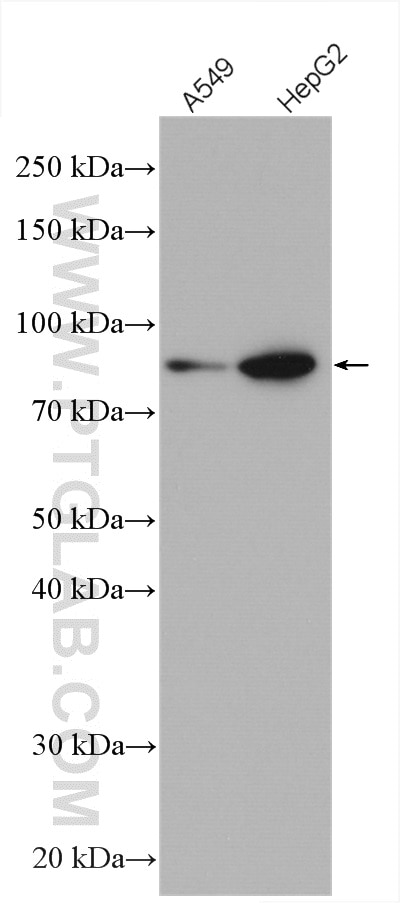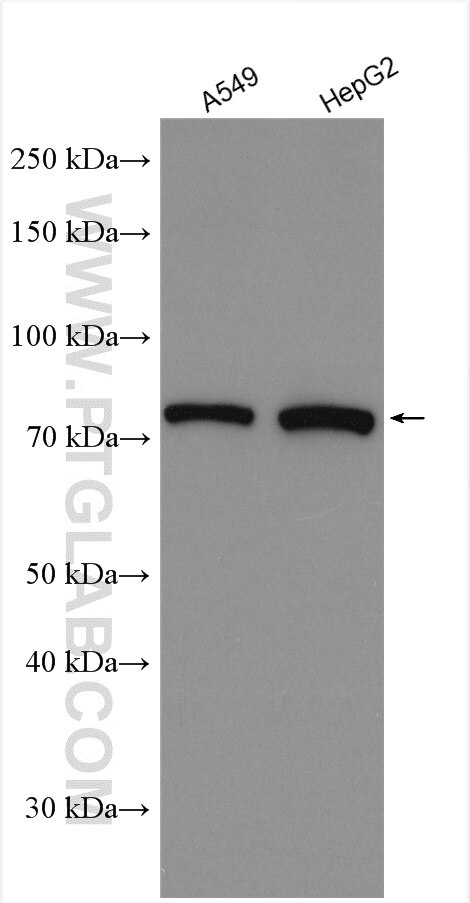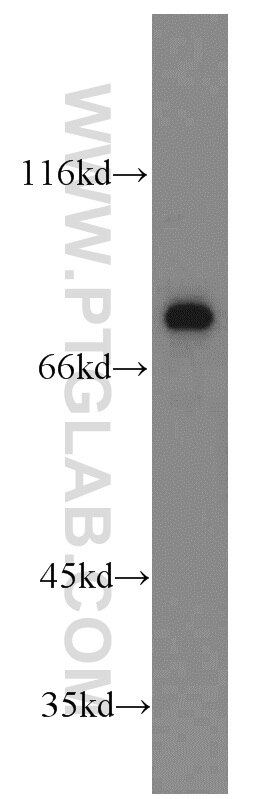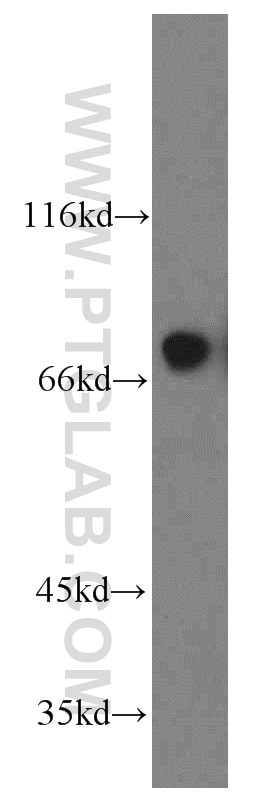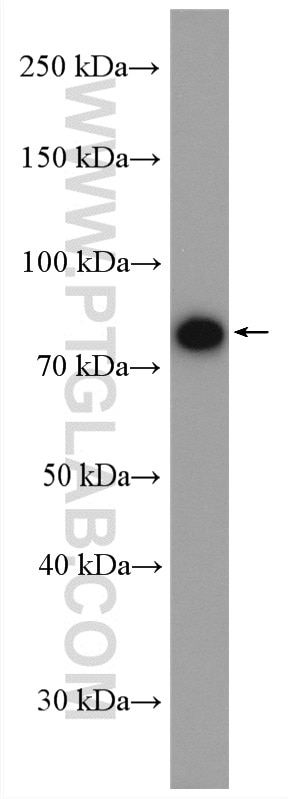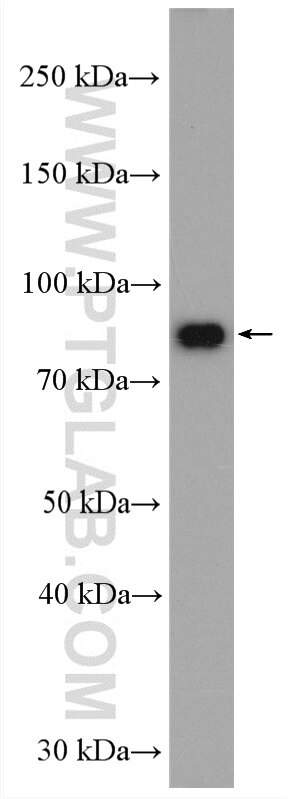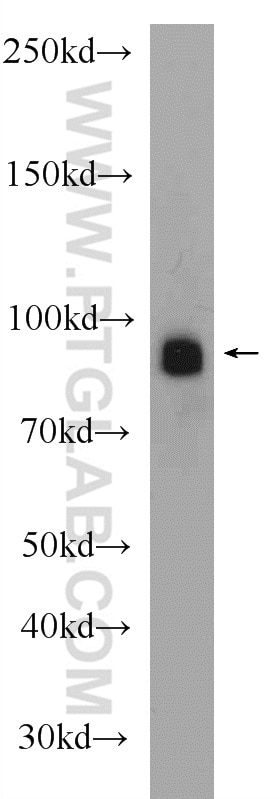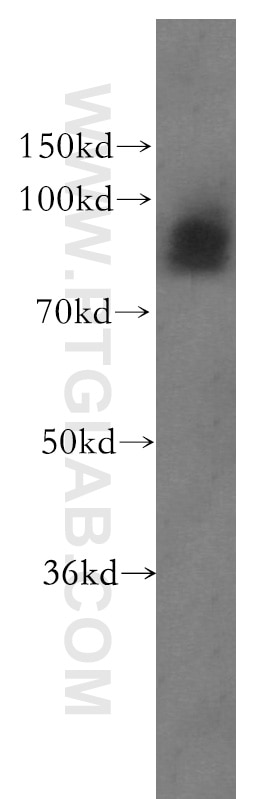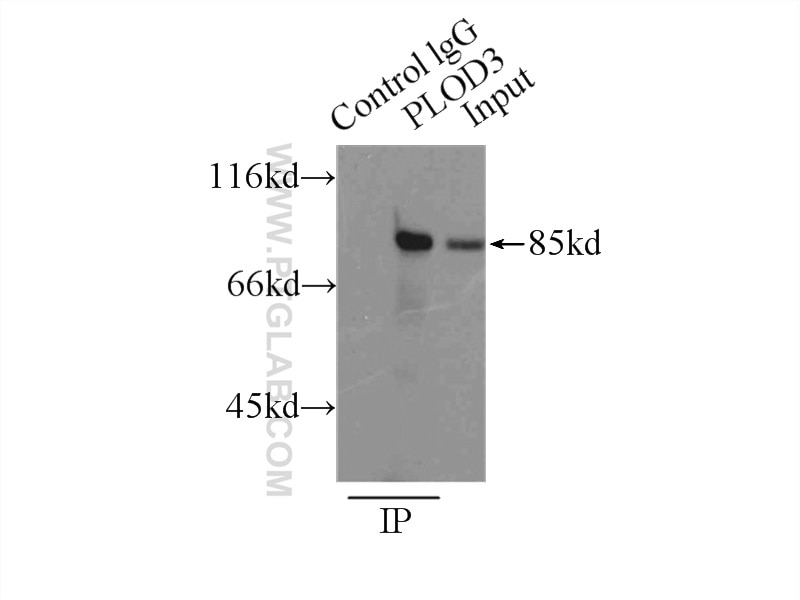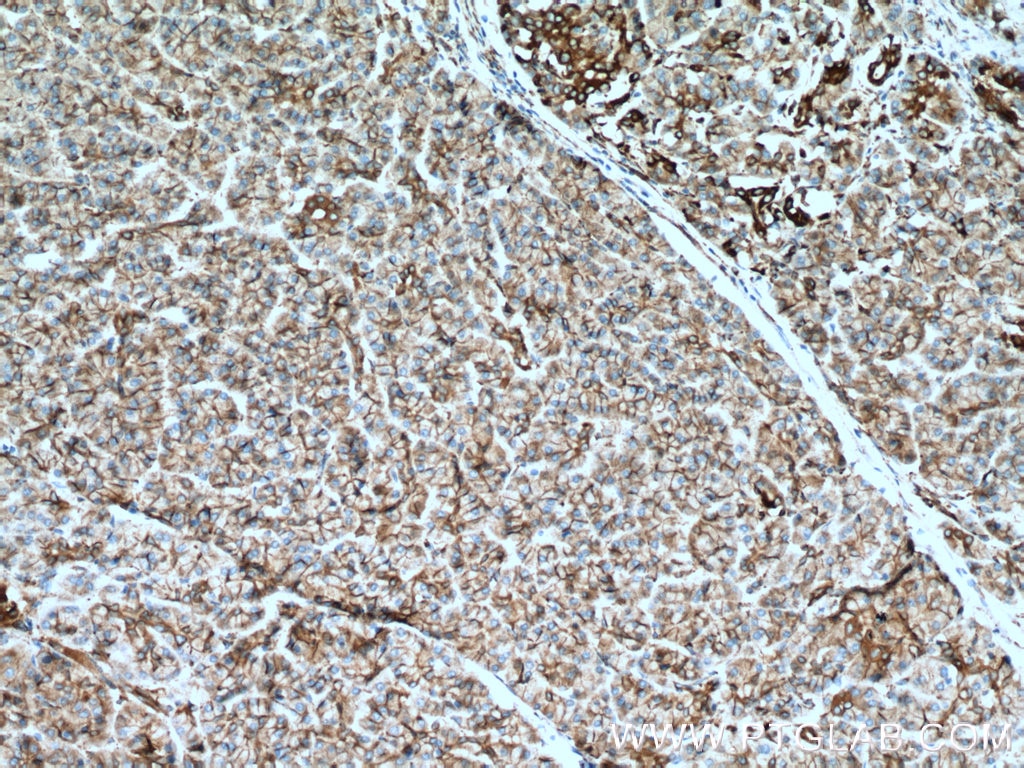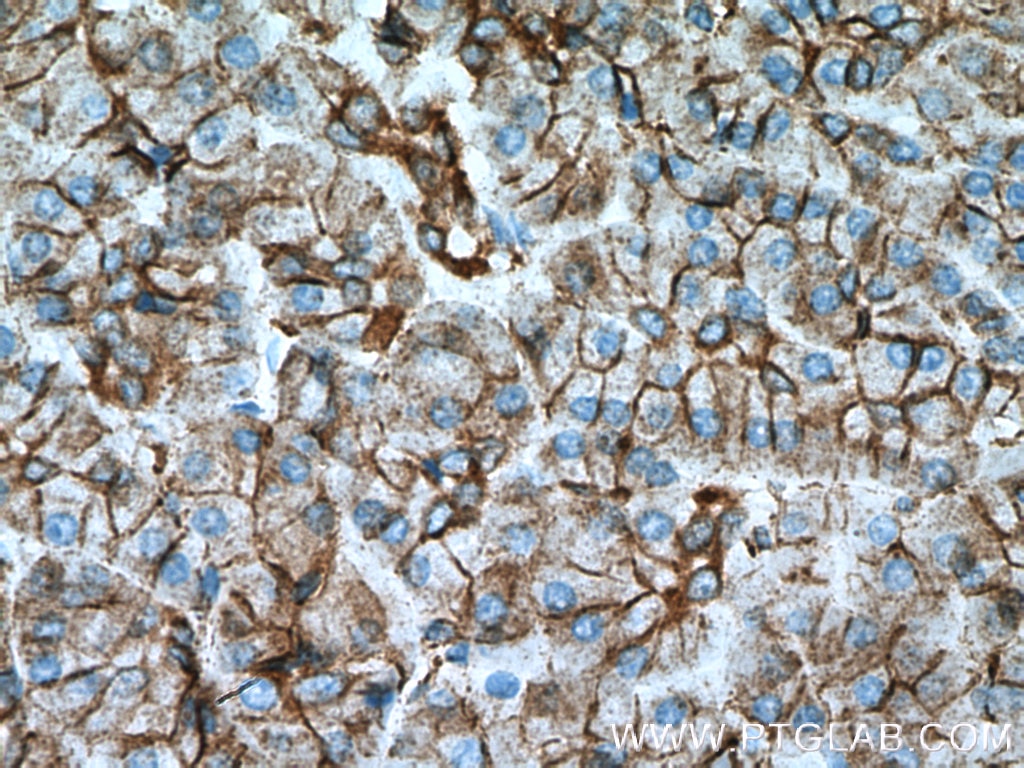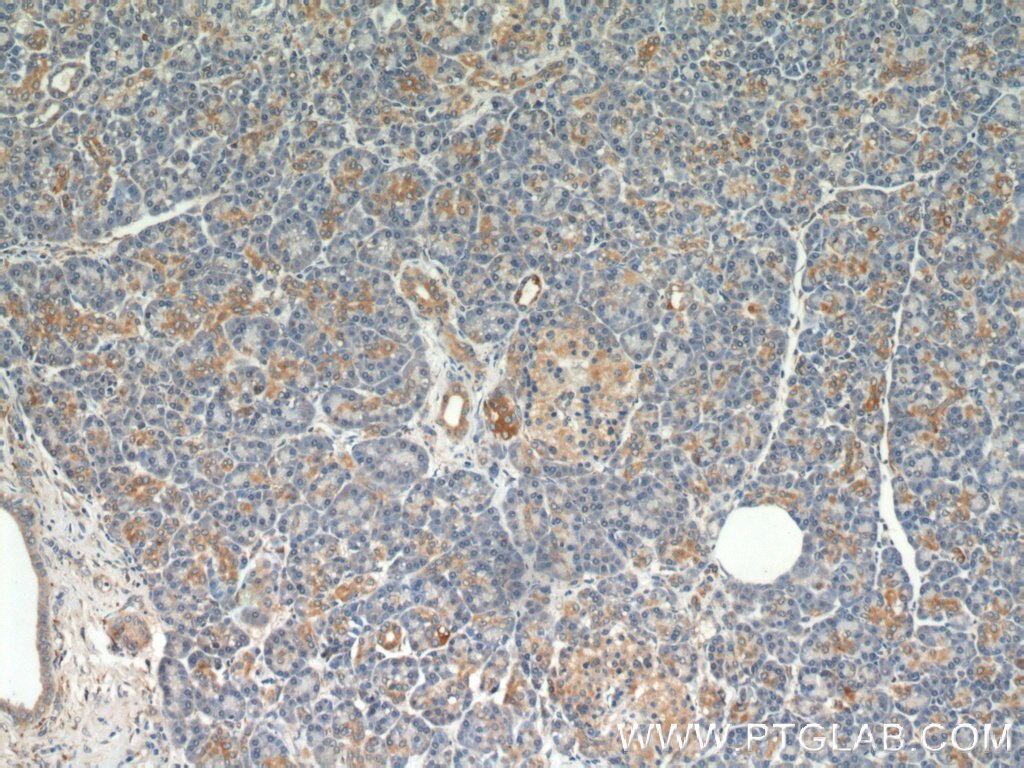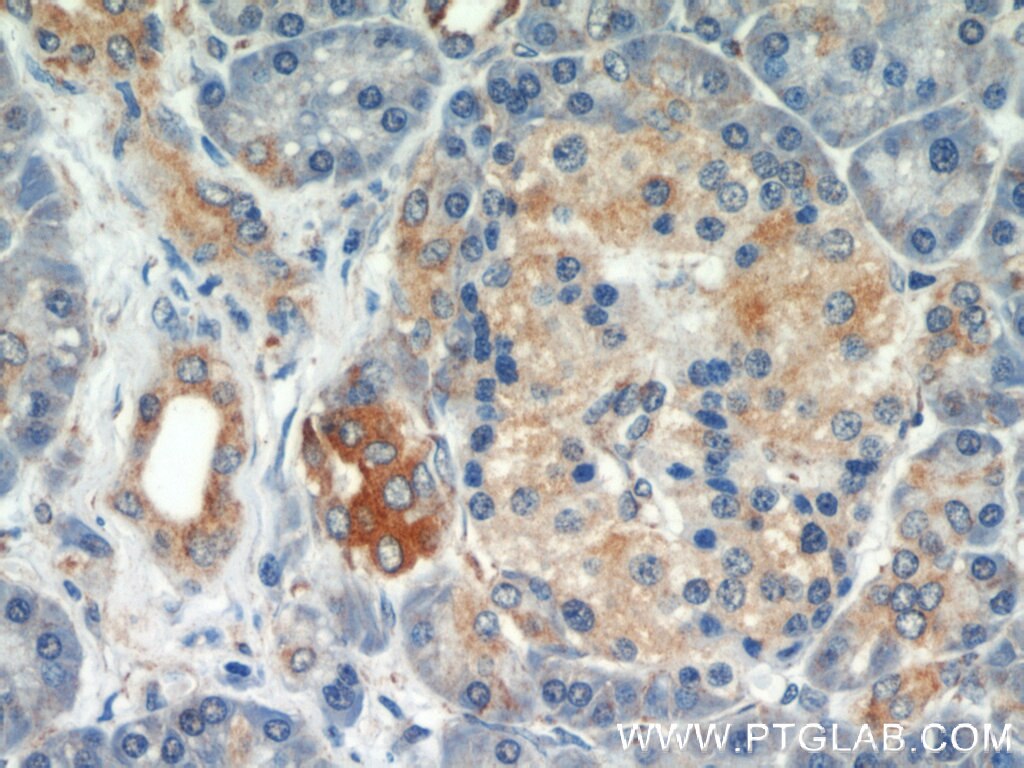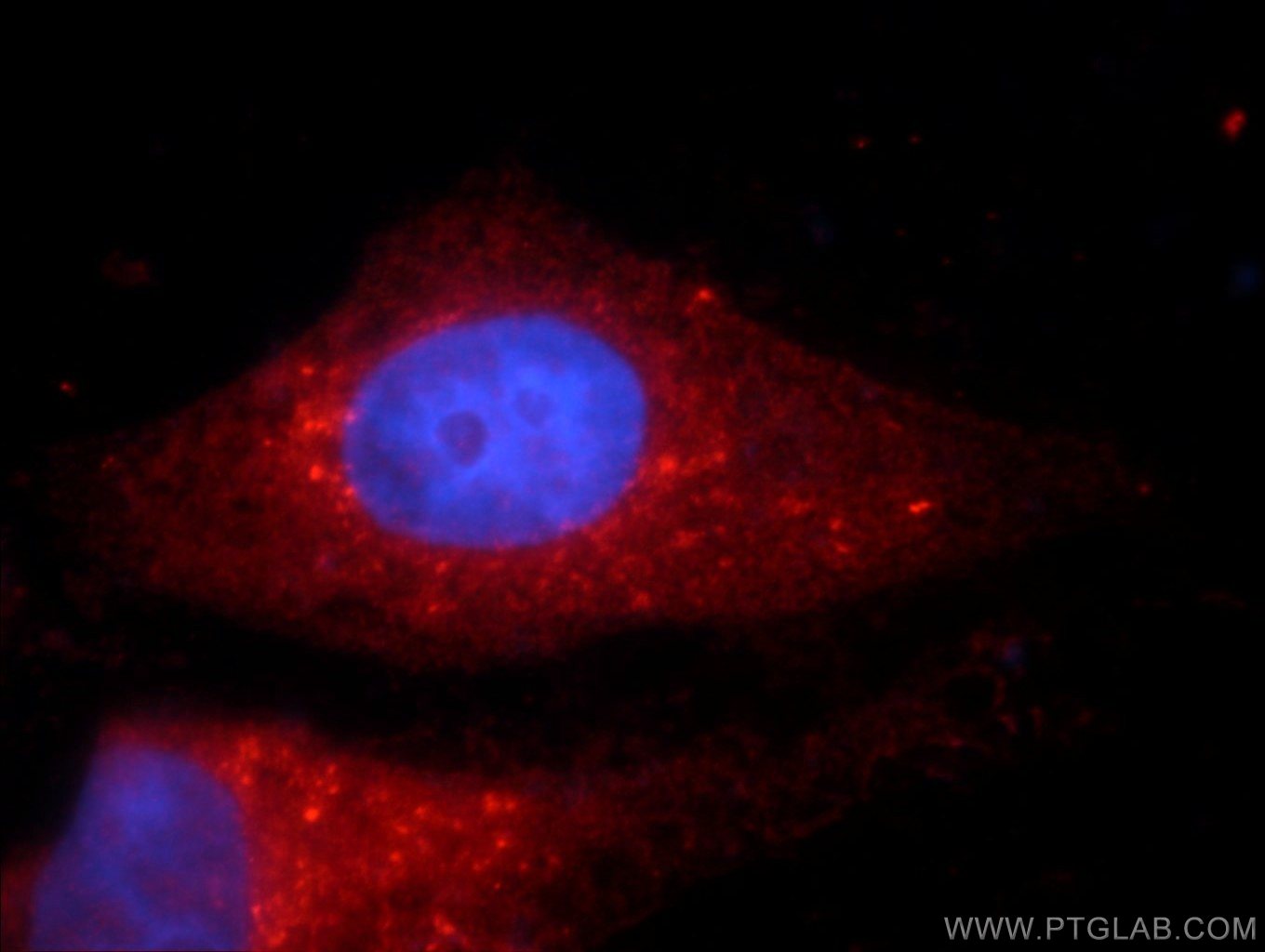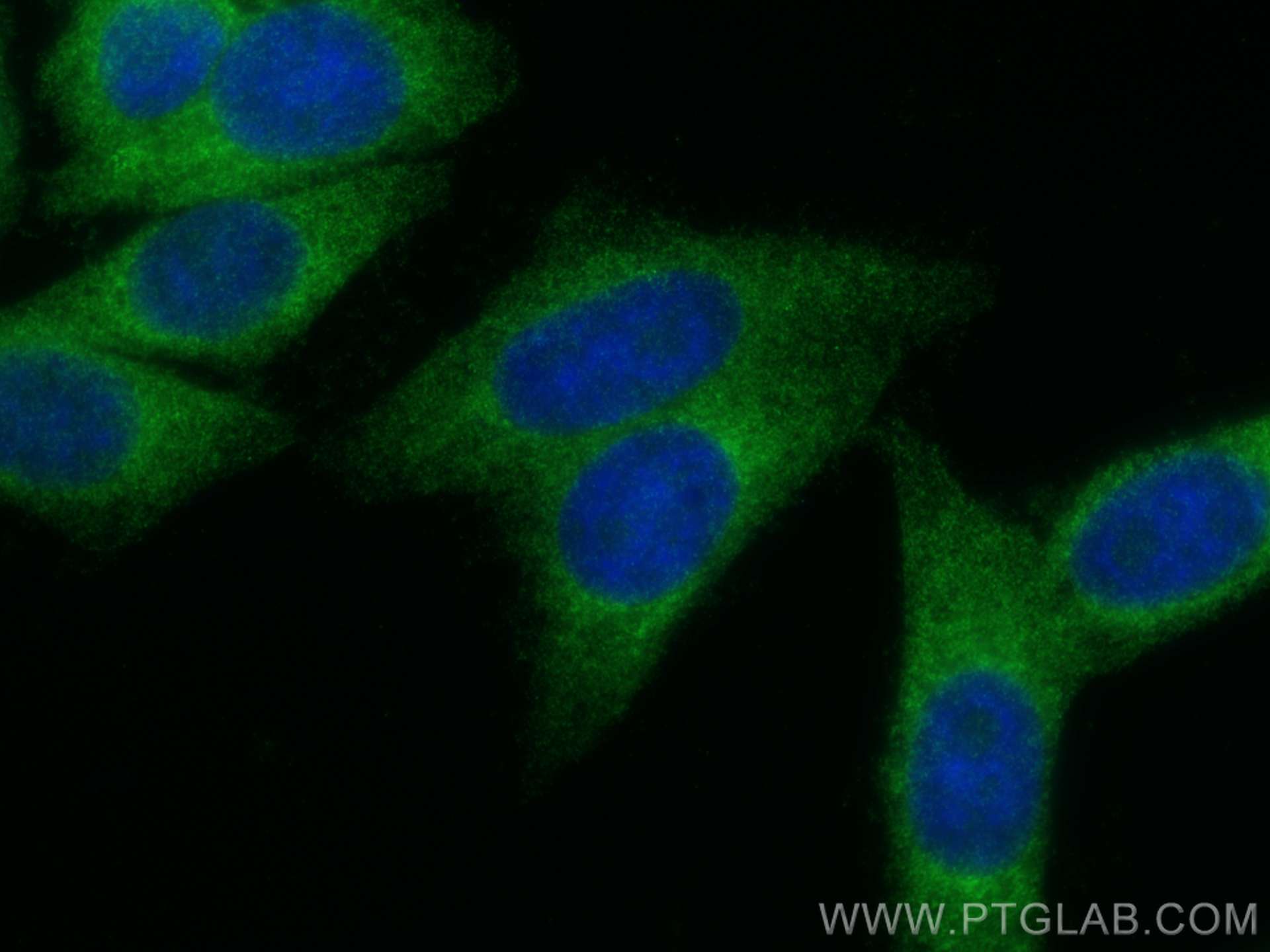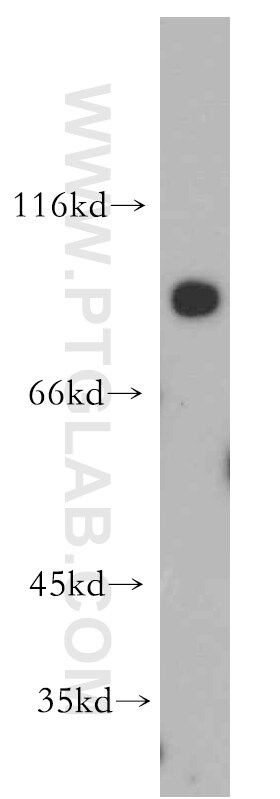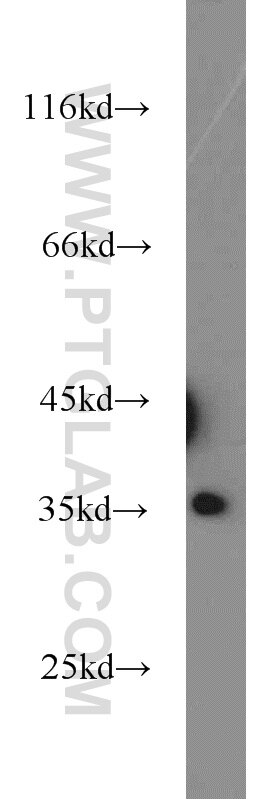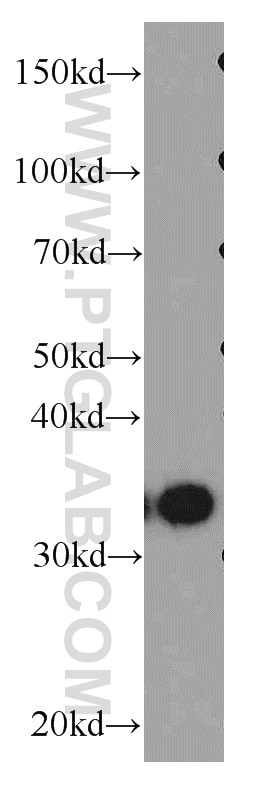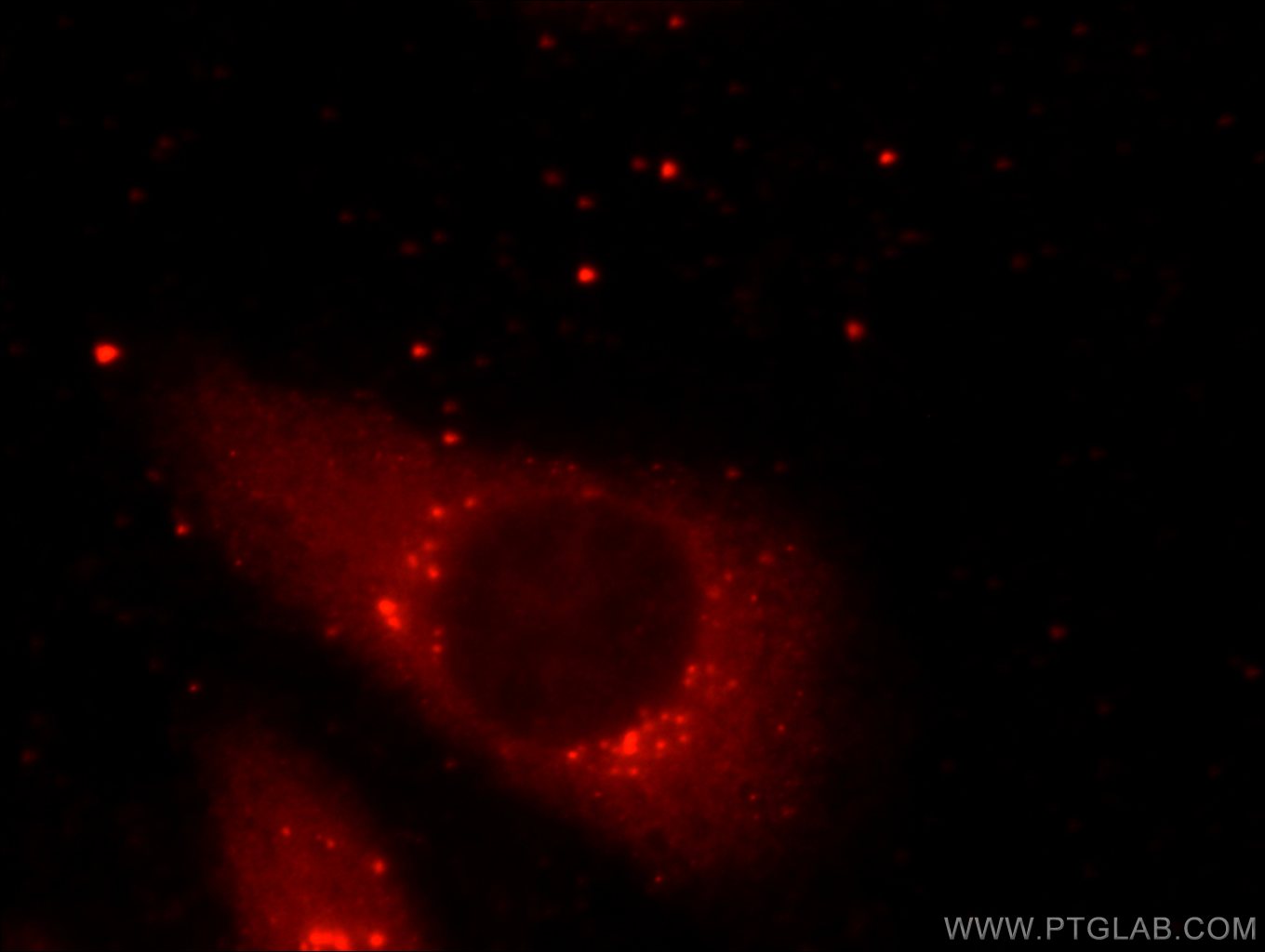- Featured Product
- KD/KO Validated
PLOD3 Polyclonal antibody
PLOD3 Polyclonal Antibody for WB, IHC, IF/ICC, IP, ELISA
Host / Isotype
Rabbit / IgG
Reactivity
human, mouse, rat and More (1)
Applications
WB, IHC, IF/ICC, IP, ELISA
Conjugate
Unconjugated
Cat no : 11027-1-AP
Synonyms
Validation Data Gallery
Tested Applications
| Positive WB detected in | A549 cells, PC-3 cells, HepG2 cells, HeLa cells, human placenta tissue, mouse placenta tissue |
| Positive IP detected in | HepG2 cells |
| Positive IHC detected in | human pancreas cancer tissue, human pancreas tissue Note: suggested antigen retrieval with TE buffer pH 9.0; (*) Alternatively, antigen retrieval may be performed with citrate buffer pH 6.0 |
| Positive IF/ICC detected in | HepG2 cells |
Recommended dilution
| Application | Dilution |
|---|---|
| Western Blot (WB) | WB : 1:2000-1:16000 |
| Immunoprecipitation (IP) | IP : 0.5-4.0 ug for 1.0-3.0 mg of total protein lysate |
| Immunohistochemistry (IHC) | IHC : 1:100-1:400 |
| Immunofluorescence (IF)/ICC | IF/ICC : 1:50-1:500 |
| It is recommended that this reagent should be titrated in each testing system to obtain optimal results. | |
| Sample-dependent, Check data in validation data gallery. | |
Published Applications
| KD/KO | See 4 publications below |
| WB | See 25 publications below |
| IHC | See 6 publications below |
| IF | See 9 publications below |
| IP | See 1 publications below |
Product Information
11027-1-AP targets PLOD3 in WB, IHC, IF/ICC, IP, ELISA applications and shows reactivity with human, mouse, rat samples.
| Tested Reactivity | human, mouse, rat |
| Cited Reactivity | human, mouse, rat, drosophila |
| Host / Isotype | Rabbit / IgG |
| Class | Polyclonal |
| Type | Antibody |
| Immunogen | PLOD3 fusion protein Ag1480 相同性解析による交差性が予測される生物種 |
| Full Name | procollagen-lysine, 2-oxoglutarate 5-dioxygenase 3 |
| Calculated molecular weight | 738 aa, 85 kDa |
| Observed molecular weight | 80-85 kDa |
| GenBank accession number | BC011674 |
| Gene symbol | PLOD3 |
| Gene ID (NCBI) | 8985 |
| RRID | AB_2165781 |
| Conjugate | Unconjugated |
| Form | Liquid |
| Purification Method | Antigen affinity purification |
| Storage Buffer | PBS with 0.02% sodium azide and 50% glycerol pH 7.3. |
| Storage Conditions | Store at -20°C. Stable for one year after shipment. Aliquoting is unnecessary for -20oC storage. |
Background Information
PLOD3, also named as LH3, forms hydroxylysine residues in -Xaa-Lys-Gly- sequences in collagens. These hydroxylysines serve as sites of attachment for carbohydrate units and are essential for the stability of the intermolecular collagen cross-links. The major function of PLOD3 in osteoblasts is to glucosylate galactosylhydroxylysine residues in type I collagen.
Protocols
| Product Specific Protocols | |
|---|---|
| WB protocol for PLOD3 antibody 11027-1-AP | Download protocol |
| IHC protocol for PLOD3 antibody 11027-1-AP | Download protocol |
| IF protocol for PLOD3 antibody 11027-1-AP | Download protocol |
| IP protocol for PLOD3 antibody 11027-1-AP | Download protocol |
| Standard Protocols | |
|---|---|
| Click here to view our Standard Protocols |
Publications
| Species | Application | Title |
|---|---|---|
Nat Commun Molecular architecture of the multifunctional collagen lysyl hydroxylase and glycosyltransferase LH3. | ||
Nat Commun Regulation of post-Golgi LH3 trafficking is essential for collagen homeostasis. | ||
Am J Hum Genet A connective tissue disorder caused by mutations of the lysyl hydroxylase 3 gene. | ||
PLoS Genet Abnormal type I collagen post-translational modification and crosslinking in a cyclophilin B KO mouse model of recessive osteogenesis imperfecta. | ||
Matrix Biol Mutations in PLOD3, encoding lysyl hydroxylase 3, cause a complex connective tissue disorder including recessive dystrophic epidermolysis bullosa-like blistering phenotype with abnormal anchoring fibrils and type VII collagen deficiency. |
